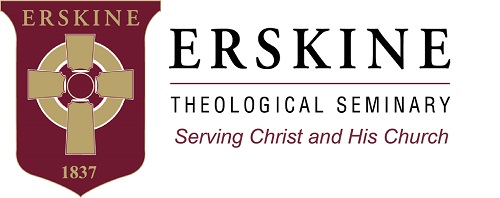The Master of Arts in Theological Studies (MATS) is an academically oriented degree that equips students for teaching the Bible, theology, and Church history in various ministry contexts and prepares them for advanced theological degrees. The integrated and focused curriculum provides the opportunity for personal enrichment or concentration on an area of research through writing a capstone project or thesis. The degree requires 48 credit hours.
Program Director
Winston, Richard W.
Director of the MATS, Th.M., and M.Div. Programs
Dr. Richard Winston holds a PhD in New Testament from Central Baptist Theological Seminary (Plymouth, Minnesota). He is an ordained minister in the Presbyterian Church of America (PCA) and previoulsy…
Foundational
- BI 501 Bible Survey = 3 hs * * Required in one of the first three semesters of studies.
or BI 080 Bible Challenge Exam = 0 hs * * Required in one of the first three semesters of studies. - BI 502 Principles of Exegesis * * Required in one of the first three semesters of studies.
- PM 502 Christian Vocation and Transformation
Departmental
- OT 501 Old Testament I
- OT 502 Old Testament II
- NT 601 New Testament I
- NT 602 New Testament II
- Bible elective
- CH 501 Early and Medieval Church History
- CH 502 Reformation/Modern Church History
- ST 601 Systematic Theology I
- ST 602 Systematic Theology II
- ST 603 Systematic Theology III
- Ethics elective
Thesis
- MA 700 Capstone Project
or MA 701 MATS Thesis * * If preparing for ThM or PhD, students write a thesis
Electives
- Elective
- Elective
- Admission
Applicants must have completed a baccalaureate degree at an accredited institution with a acceptable grade point average. - Graduation
Students must complete 48 semester hours of coursework with a cumulative GPA of 2.0 to remain in good standing and maintain eligibility for financial aid. The program may be completed in as little as two years of full-time study. Students must normally complete the program within six years.
Student Learning Outcomes
In dependence upon the grace of God, Master of Arts in Theological Studies (MATS) graduates will be able to:
- Articulate (both orally and in writing) the essential biblical, theological, historical, and cultural concepts necessary for a lifetime of learning and effectiveness in their callings and ministries. (Articulation and Essentials)
- Interpret the Bible within its canonical and historical contexts and apply the message of the Bible to contemporary life, especially through teaching, while drawing upon the Church’s theological and historical heritage (Interpretation and Application)
- Discuss graciously the essentials of evangelical Christianity and the Reformed theological tradition within the contexts of diverse ecclesiologies, contemporary cultures, and global Christianity. (Evangelical and Reformed)
- Demonstrate the ability to theologically evaluate contemporary issues in the Church and the world. (Theological Integration)
- Demonstrate love for Jesus Christ and growth in sanctification toward personal, relational, and spiritual maturity appropriate to their vocational callings and ministry contexts. (Sanctification)
- Demonstrate competence for faithful and effective Christian leadership in the Church and its mission to the world. (Christian Leadership)
- Author a capstone thesis or project that demonstrates academic writing and synthetic research skills and contextual application abilities appropriate to a graduate degree. (Capstone)

